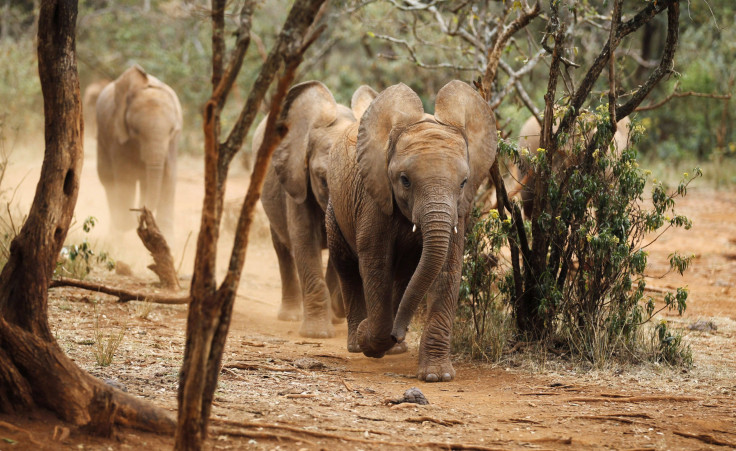African Elephants Becoming Extinct? More Mammals Killed By Poachers Than Born Annually, Study Shows

Africa’s elephants are being poached to supply illegal ivory to markets around the world, resulting in possible extinction. Between 2010 and 2013, Africa lost an average of 7 percent of its entire elephant population each year, researchers found. Elephant births only boost the population by 5 percent annually, so more elephants are being killed each year than are being born.
"If this is sustained, then we will see significant declines over time,” said Julian Blanc, who worked on the study titled, “Proceedings of the National Academy of Sciences.”
On average, nearly 35,000 elephants have been killed annually since 2010, researchers estimate. At this rate, elephants could be extinct in 100 years.
"We are shredding the fabric of elephant society and exterminating populations across the continent," said George Wittemyer, lead author of the study.
Illegal killing of Africa’s elephants has increased markedly over the last several years, and there is a strong correlation between the increased deaths and the local black market ivory price. Most of the ivory is destined for China and their growing market.
Elephants in Central Africa have been affected the most. It is estimated that the elephant population has decreased by about 60 percent in the last 10 years.
"There are still healthy growing populations in parts of Africa -- Botswana, for example. But in other places the poaching levels are devastatingly high, and that is particularly the case in Central Africa,” Blanc said.
In order to end the alarming decline in the African elephant population, conservationists say global action is required.
"In terms of concrete actions, we need to move to focus on the front-line and tackle all links in the illegal ivory trade chain -- improve local livelihoods (for those living with elephants), strengthen enforcement and governance and reduce demand for illegal ivory," said John Scanlon, secretary-general of the Convention on International Trade in Endangered Species of Wild Fauna and Flora.
© Copyright IBTimes 2024. All rights reserved.






















